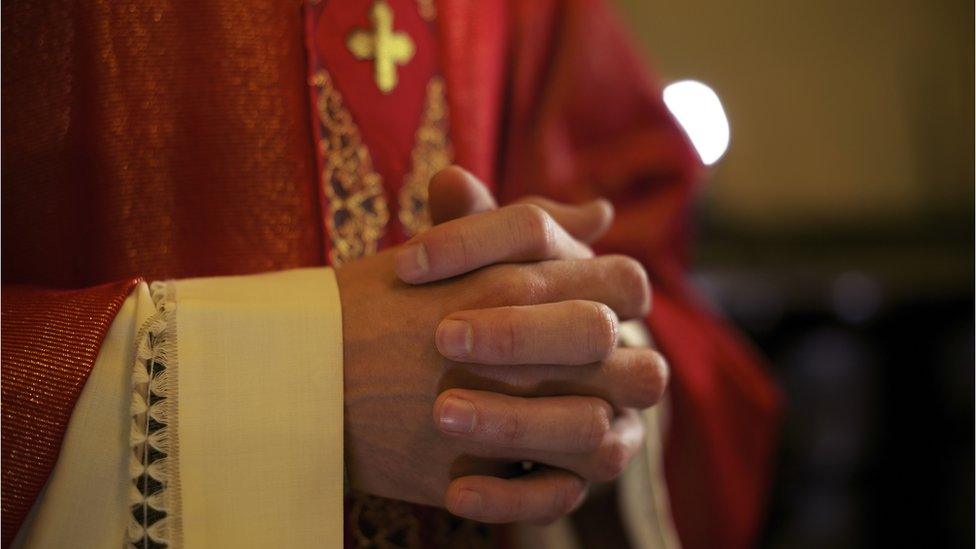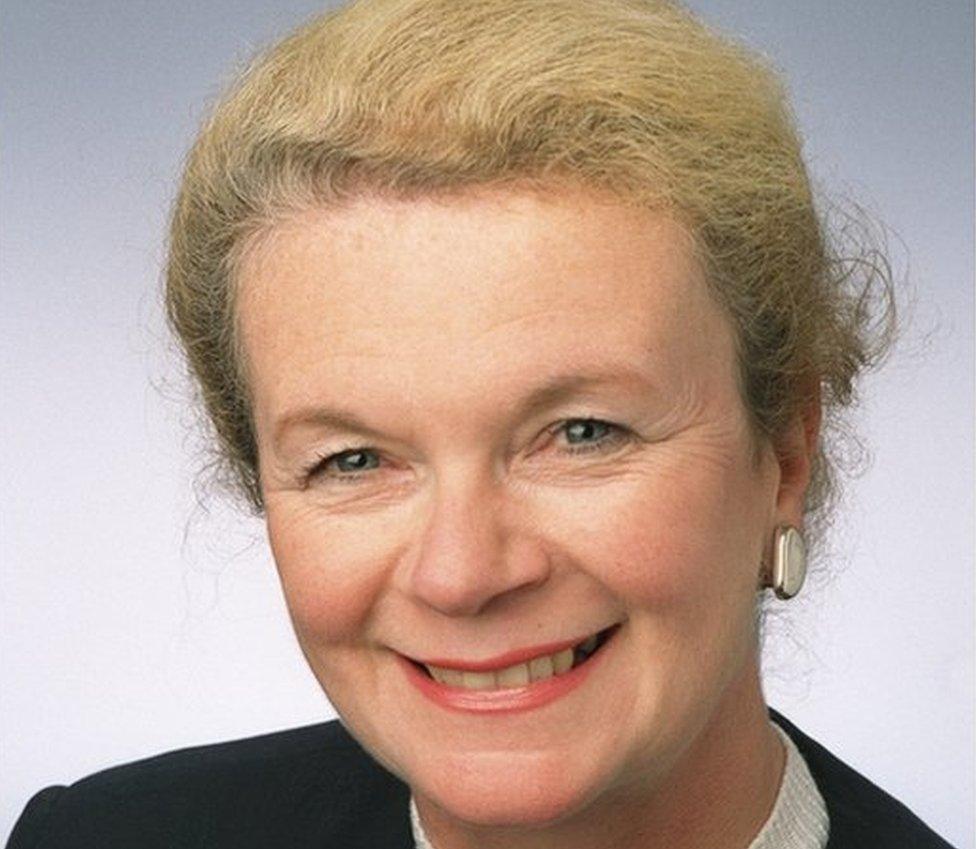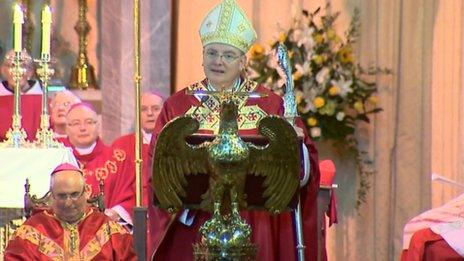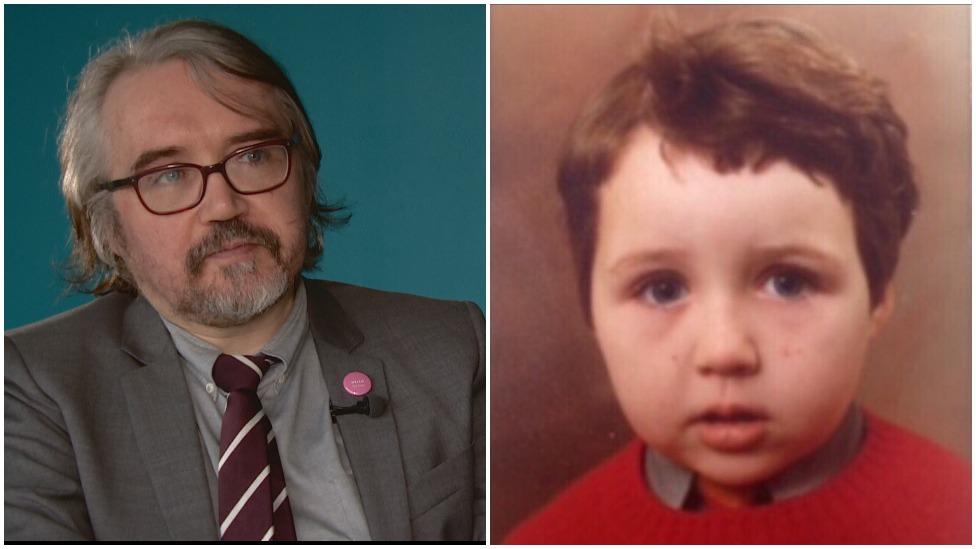'Work needed' to repair trust in Catholic Church in Scotland
- Published

Work is needed to help the Catholic Church in Scotland "repair trust" with its communities, an independent review has concluded.
Reviews of safeguarding processes within two dioceses noted "healing" was still ongoing and called for more support for abuse survivors.
The findings were published as part of the second stage of an independent review.
It was set up to consider how the church responds to abuse allegations.
The independent review group has been considering the response of the Catholic Church in Scotland to the recommendations of the 2015 McLellan Commission report.
In its first report in June last year, the group said they had found a willingness to change in the hierarchy of the Catholic Church but progress still had to be made.
Scotland's eight dioceses are now in the process of being randomly audited over a four-year period.
The Archdiocese of St Andrews and Edinburgh and the Diocese of Galloway diocese were examined first and the findings were welcomed by both dioceses.
The review is being led by former Scottish secretary, Baroness Liddell of Coatdyke, who said there had been a "rigorous exploration".

Baroness Liddell led the review of the Catholic Church's response to the McLellan Commission
She said the audits were a "learning exercise" and hoped abuse survivors would be "reassured".
"We owe a debt of gratitude also to those in the dioceses, both clergy and laity, who sometimes had to face up to examining some actions in the past that they had no part in but had to live with the consequences, sometimes with deep pain," she said.
"Never again will we assume that the vulnerable are safe. Never again will there be a hiding place for the abusers of those we love."
'More understanding for survivors'
The report noted, external that progress had been made in St Andrews and Edinburgh despite "difficult circumstances", including the prior management of the diocese by Cardinal Keith O'Brien.
Cardinal O'Brien stood down in February 2013 after admitting sexual misconduct and was replaced by Archbishop Leo Cushley.

Archbishop Cushley was consecrated at St Mary's Cathedral in Edinburgh
The report concluded that work was needed to "repair and build trust in safeguarding processes".
Safeguarding is the responsibility of each diocese's bishop, but the report said "without external scrutiny or independence" it is likely that "conflicts of interest" would affect each area.
It also said leaders of the diocese needed to employ a more "supportive approach" to "understand and empathise" with the view of survivors or risk an increase in divisions between the church and its challengers.
Such issues are likely to affect other dioceses, the report said.
'Barrier to healing'
Meanwhile a separate report for the Galloway diocese, external highlighted how the case of one paedophile priest, Paul Moore, had affected a number of parishioners who volunteered to train and help in the safeguarding process.
It said there were "divisions and strong emotions" for the people Moore abused.
The report also said that previous responses by the church had "not been professional" and that contact with survivors was "poor".
The report said there was a need to "tackle the contradictory narratives" regarding the case which continued to "challenge and act as a barrier to healing".
However, it added the diocese had begun to work with survivor organisations and the appointment of a diocese safeguarding advisor had been a "turning point".
The review group are expected to meet with each diocese within six months to review progress.
Bishop Joseph Toal, president of the commission for pastoral and social care said: "Safeguarding is at the heart of the church's mission and the maintenance of high standards is only possible through independent scrutiny and a commitment to implement any recommendations proposed."
- Published15 June 2019

- Published11 April 2018
